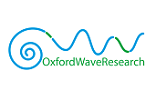We are delighted that Oxford Wave Research Ltd and the University of Cambridge, in collaboration with the Cambridge Trust, have established a new PhD studentship based at Selwyn College, Cambridge. The award enables a student to undertake a PhD in Theoretical and Applied Linguistics, commencing in October 2020. The studentship was open to UK and EU candidates of outstanding academic potential, and covers tuition fees and maintenance for three years.
The studentship is in the area of forensic phonetics, the application of phonetic analysis to criminal cases, often where the identity of a speaker is in question, either due to an incriminating recording (e.g. hoax call, ransom demand, telephone threat, etc.) or due to a witness having heard a speech event at a crime scene. Forensic phonetics uses both traditional phonetic and automatic (machine-based) techniques.
The PhD project aims to consider the relationships between traditional phonetic analyses and automatic speaker recognition (computer-based identification and recognition of the identity behind a voice). The studentship will include collaborative opportunities for the student to gain industry experience and to conduct research in conjunction with Oxford Wave Research, an audio processing and voice-biometrics company which specialises in developing solutions for law enforcement agencies in forensic voice comparison. The student’s research will consider both human and machine-based, algorithmic selection of different groups of speakers for various forensic analyses based on different criteria and the implication of the selections of these groups in the evaluation of the strength of evidence. These criteria include voice similarity perceived by human listeners and demographic features such as gender, language, age, regional accent. Further, the research will attempt to evaluate how the human or automatic, machine-based selection of databases can result in algorithmic bias.


















